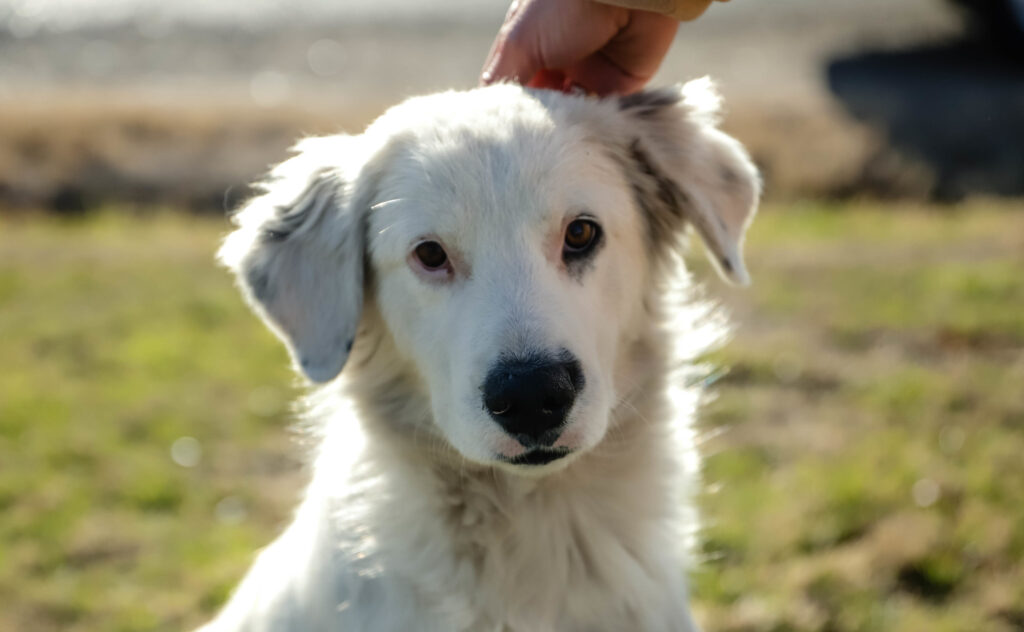Are you considering residing in Buenos Aires? You wouldn’t be the first or last foreigner to want to do so with a pet by your side. You’re not alone in thinking that a dog, cat, or other domestic animal can be the best company when adapting to life in a foreign country.
The good news is that Buenos Aires is a pet-friendly city. Statistics and casual observation on the streets of the city clearly show that dogs and cats are excellent companions for Buenos Aires residents.
Here, we provide you with all the information you need when adopting or adding a pet to your family. By the end of this article, you’ll have a more reliable assessment of whether it’s a good idea to have a pet—maybe not right now, but perhaps in the future.
Is it a good idea to have a pet in Buenos Aires?
Interesting Statistics About Pets in Buenos Aires1
- It’s estimated that around 20 million animals (cats and dogs) live on the streets in Argentina.
- In Buenos Aires homes, it is estimated that there are nearly 500,000 dogs and more than 350,000 cats (2022).
- Over 40% of households in Buenos Aires have at least one pet (dog and/or cat).
- The trend shows an increase in households with dogs and/or cats in the city.
- More than 20% of households in Buenos Aires have dogs; over 12% have only cats; and just 6.3% have both dogs and cats.
- In almost all neighborhoods of Buenos Aires, there is a higher proportion of households with dogs exclusively.
- The growth rate of the cat population in recent years is higher than that of dogs.
- By 2022, Buenos Aires had 16 dogs per 100 people and nearly 12 cats per 100.
- The spaying and neutering rate for pets in Buenos Aires is 54.6%, while the remaining 45.4% have not undergone the procedure.
- Vaccination rates exceed 80% for dogs and 65% for cats.
- In Buenos Aires, 28.9% of dogs entered the home as gifts, 25.2% through adoption, and 16.5% were picked up from the street. More than 25% were purchased.
- For cats, over 40% were adopted, while 31.1% were picked up from the street. Additionally, 18.5% were given as gifts, and only 6.3% were purchased.
Should You Adopt, Rescue from the Street, or Buy?
Given the number of stray dogs and cats in Buenos Aires, it’s not a bad idea to give a homeless animal a different future with your help. Keep in mind that there are around 20 million homeless dogs and cats in Argentina.
You can also adopt from pet care centers and shelters or purchase a pet if you prefer to avoid potential health treatments that could be costly.
Most adoption centers and pet shelters in Buenos Aires can be found on social media, particularly Instagram. Some are large and located in the Province of Buenos Aires, while others are smaller shelters.

Where Are Pets Prohibited?
In hotels and other types of accommodations, such as apartments or hostels, pet access is regulated. Generally, the response from administrators and hotels is negative. However, they may allow a pet, provided that the owners ensure it does not disrupt others (dogs) or damage the property (cats and dogs).
We recommend discussing this with the owners of the apartment or house you wish to rent before finalizing the transaction.
In public transportation, pet access is severely limited, if not entirely restricted.
In trains and buses, pet access is restricted. On the Buenos Aires subway, pets are allowed on holidays and Sundays or on Saturdays after 1 p.m. They must travel in the last car of the train and always in closed carriers.
For private transportation, such as taxis or Uber, it depends on the driver’s willingness.
While most stores and shopping centers prohibit pets, more and more merchants are allowing pet access, provided the necessary safety measures are in place. A good example is cafés, which are leading the way in this regard, or the open-air shopping center in Palermo (Distrito Arcos).
What Vaccines Should My Pet Receive?
It is advisable to have a professional veterinarian plan your pet’s vaccination schedule, as well as determine which injections are necessary and at what age.
First, it is essential to carry out external and/or internal deworming treatments.
Puppies should be vaccinated starting at six weeks of age. When acquiring one, you should receive a health card and the first dose at the very least. Meanwhile, it is crucial to avoid contact with other dogs and walks in streets and parks to prevent infections.
The mandatory vaccines for dogs include:
- Rabies vaccine
- Canine distemper virus vaccine
- Parvovirus vaccine
Optional vaccines include those that protect the animal against:
- Leptospirosis
- Leishmaniasis
- Parainfluenza
- Bordetella
- Infectious Hepatitis
- Lyme Disease
- Coronavirus
The vaccination schedule for dogs is as follows:
At 6 weeks of age: first polyvalent vaccine (sextuple). At 8 weeks of age: second dose of the polyvalent vaccine, covering adenovirus, distemper, parainfluenza, and parvovirus. At 12 weeks of age: booster of the polyvalent vaccine. At 16 weeks of age: rabies vaccine. At 1 year: booster of the polyvalent and rabies vaccines.
Vaccination Schedule for Cats
Even if they don’t interact with other animals, cats must receive the appropriate vaccines for their protection.
The first vaccine should be given at eight weeks of age. This is the triple feline vaccine, which protects against feline viral rhinotracheitis, feline calicivirus, and feline panleukopenia (distemper). These diseases pose a high mortality risk. Additionally, a booster is required at three months of age.
The rabies vaccine is also mandatory for cats. The first inoculation is given at four months of age and must be repeated annually.
Internal and/or external deworming is also recommended starting at 21 days and every six months.
| Pet Type | Vaccination Schedule | Mandatory Vaccines | Optional Vaccines |
|---|---|---|---|
| Dogs | 6 weeks: Primovaccination (first polyvalent vaccine) | – Rabies vaccine | – Leptospirosis |
| 8 weeks: Second dose of polyvalent | – Canine distemper virus vaccine | – Leishmaniasis | |
| 12 weeks: Booster of the polyvalent | – Parvovirus vaccine | – Parainfluenza | |
| 16 weeks: Rabies vaccine | – Bordetella | ||
| 1 year: Booster of the polyvalent and rabies vaccines | – Infectious Hepatitis | ||
| – Lyme Disease | |||
| – Coronavirus | |||
| Cats | 8 weeks: First dose of triple feline vaccine | – Triple feline vaccine (protects against: | |
| 12 weeks: Booster of the triple feline vaccine | – Feline viral rhinotracheitis | ||
| 16 weeks: Rabies vaccine | – Feline calicivirus | ||
| 1 year: Annual booster of the rabies vaccine | – Feline panleukopenia (distemper) |
Free Services in the City of Buenos Aires
In Buenos Aires, you can access free spaying/neutering and rabies vaccination services.
These are provided through mobile units and fixed veterinary centers owned by the City Government.
You must bring your pet with a collar, leash, and ID tag if it’s a dog, or in a carrier if it’s a cat.
To spay/neuter your pet, you need to check the dates and locations where appointments are provided. You must register with a MiBA account (the Buenos Aires City appointment system), complete a form, and select a date.
On the day of the appointment, a preoperative clinical examination is performed, followed by the spaying/neutering. The pet must be accompanied by a person over 18 years old, be fasting (12 hours without food and 3 hours without liquids), wear a collar, leash, and be in a carrier (depending on whether it’s a dog or cat), and have a blanket to keep warm post-surgery.
The rabies vaccine is administered without a prior appointment at any of the operating veterinary centers, whether mobile or fixed. You can check the schedule for dates, times, and locations on the City Government website.

How Should I Walk My Pet?
Pets (mainly dogs) must be walked with a collar and leash. While you won’t receive a fine or punishment if you decide to walk your dog off-leash, any incident involving your pet and another person or dog will have consequences for you.
If you have a large or strong breed of dog, it’s also advisable to use a muzzle (e.g., Doberman, Pitbull).
What Are the Best Places to Walk My Pet?
If you’re tired of just walking around the block or taking the same street route with your dog, consider visiting green spaces.
Parks and plazas are the most frequented places by pets and their owners. They are spacious and ideal for dogs to interact with other pets and get some exercise. Additionally, these places often have dog parks or special enclosures with play areas.
Are Dog Walkers Recommended?
When you’re not at home due to work and your dog is left alone for many hours, it’s ideal to hire a dog walker. This is also a good option if you can’t take your dog out for a walk or want them to interact with other animals to avoid boredom.
When hiring a dog walker, remember that the maximum number of dogs they can walk simultaneously is eight. Additionally, all dogs must wear a collar, leash, and muzzle if they belong to a more dangerous breed.
Most dog walkers stroll through the neighborhood streets and take a walk in plazas or parks. It’s best to ask neighbors and colleagues for a reliable and respectful dog walker’s contact information.
Does the Law Punish Animal Abuse?
The current law in Argentina regarding animal abuse is Law 14.346, enacted on October 27, 1954. This legislation establishes prison sentences ranging from 15 days to one year for anyone who “inflicts mistreatment or causes acts of cruelty to animals.”
National authorities have presented a bill to toughen penalties and punishments for animal abuse in Argentina.
The new law proposes prison sentences for acts considered mistreatment or cruelty towards animals: failing to provide sufficient food in quantity and quality; using animals to pull vehicles that significantly exceed their strength; forcing them to work with painful instruments; and failing to provide appropriate medical and/or veterinary care.
Additionally, those who commit acts of cruelty towards animals will face harsher penalties than those under the current law: cruelty crimes include experimenting on animals, intentionally injuring or running over an animal, causing unnecessary torture or suffering, and organizing public or private animal fights, bullfights, or novilladas.
(Featured Image Source: fernandolunad/flickr.com)
- https://www.estadisticaciudad.gob.ar/eyc/wp-content/uploads/2023/07/Modulo_tenencia_responsable_p_y_g_EAH_2022.pdf ↩︎


